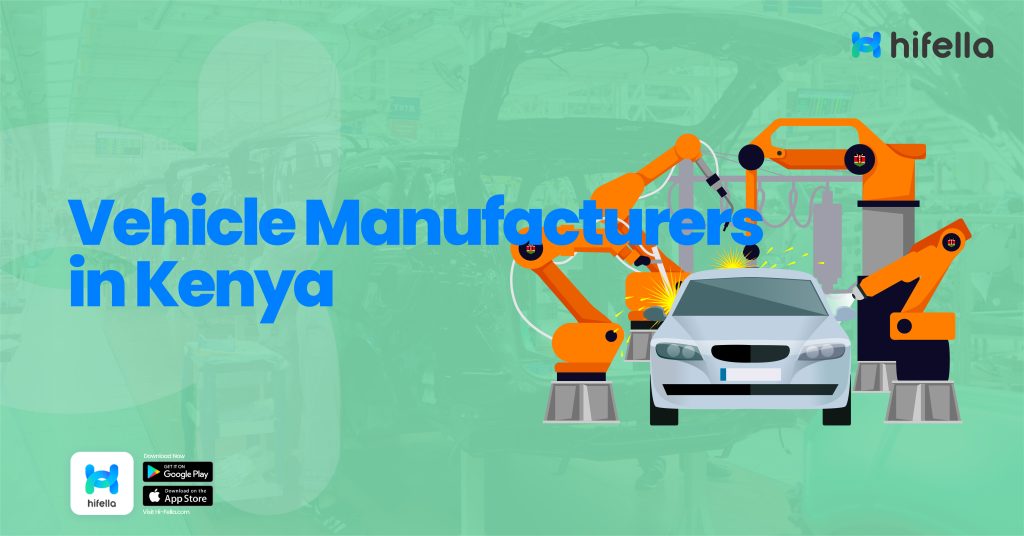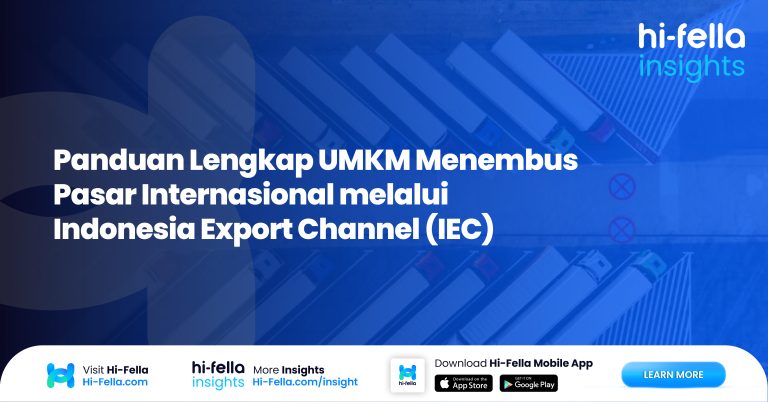Table of Contents
When it comes to Kenya vehicle manufacturers, Kenya’s position as a major player in the automotive industry is strengthened by its geographical advantage and strong trade network in the East African Community (EAC) and beyond.
In this article, we will explore the top vehicle manufacturers in Kenya and the challenges and opportunities in the industry.
Overview of Kenya Vehicle Manufacturers
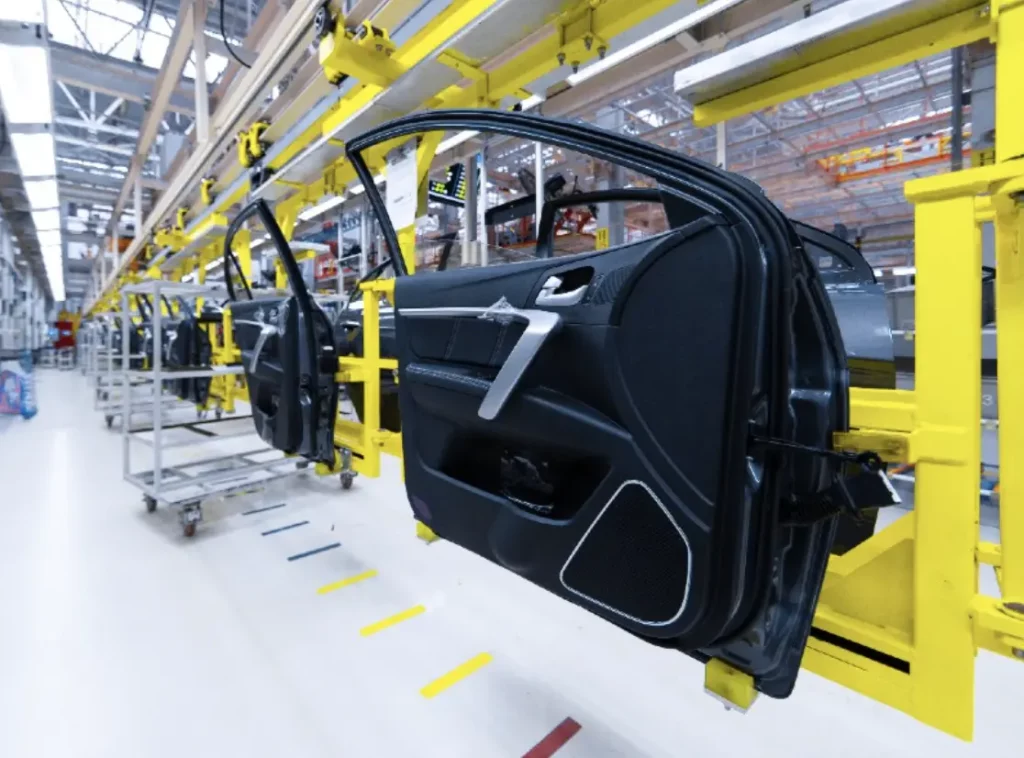
Source: ESI-Africa
The automotive industry in Kenya, characterized by resilience and adaptability, has witnessed significant evolution over the years. With a focus on assembly and manufacturing, Kenya has positioned itself as a strategic hub for vehicle production in the region.
This segment of the industry benefits from government support, strategic geographical location, and growing demand for commercial and personal vehicles.
Understanding the foundations and current state of the sector provides the necessary background to assess the achievements and challenges of vehicle manufacturers in Kenya.
Top Kenya Vehicle Manufacturers
In Kenya, there are some key players in the vehicle manufacturing scene. These companies are not just selling cars; they’re also building them right here in Kenya.
They work on a variety of vehicles, including commercial trucks and personal cars. Some of these manufacturers are known globally, while others are local companies that are starting to make a name for themselves.
They use modern technology to make sure the vehicles meet high standards for quality and safety. According to the Business List, here are the best vehicle manufacturers in Kenya:
1. Milestone Cars ASV
- Location: Karimi House, Moi Avenue, Mombasa, Kenya
- About: Milestone Cars ASV stands out as an internationally recognized organization specializing in the development, trade, and supply of armored vehicles across East Africa. With a presence spanning the African continent, Europe, and the Middle East, Milestone Cars are dedicated to providing top-quality armored vehicles for various security needs.
- Services: Armored vehicle development and supply.
- Verified Experience: Over 10 years in the industry.
2. Nano Doctor Africa
- Location: Nairobi
- About: Good Africa Trade & Consultants introduces Nano Doctor, a groundbreaking oil additive launched in Kenya. Comprising nanoparticles of copper and other materials, it promises enhanced engine performance and longevity.
- Verified Experience: 8+ years in the market.
3. Chifumo-Auto Estate
- Location: Kisii, Kenya
- About: Chifumo-Auto Estate, a dynamic presence in the automotive sector, excels in the export and import of new and used vehicles, bridging the gap between Ukrainian and foreign automobile markets.
- Verified Experience: 11 years of dynamic operation.
4. MSPV Armored Vehicles
- Location: Mavoko Municipality, Nairobi
- About: Minerva Special Purpose Vehicles (MSPV) focuses on crafting state-of-the-art vehicles for civilian and military use, ranging from armored SUVs to military light vehicles, tailored to specific needs.
- Verified Experience: 8 years crafting specialized vehicles.
5. Universal Tyres & Systems (K) Ltd
- Location: Nairobi
- About: Aims to be the top retreading service provider in the East African region, offering unparalleled retreading services that extend the life of tires.
- Verified Experience: 10+ years leading in retreading.
Industry Challenges and Opportunities of Kenya Vehicle Manufacturers
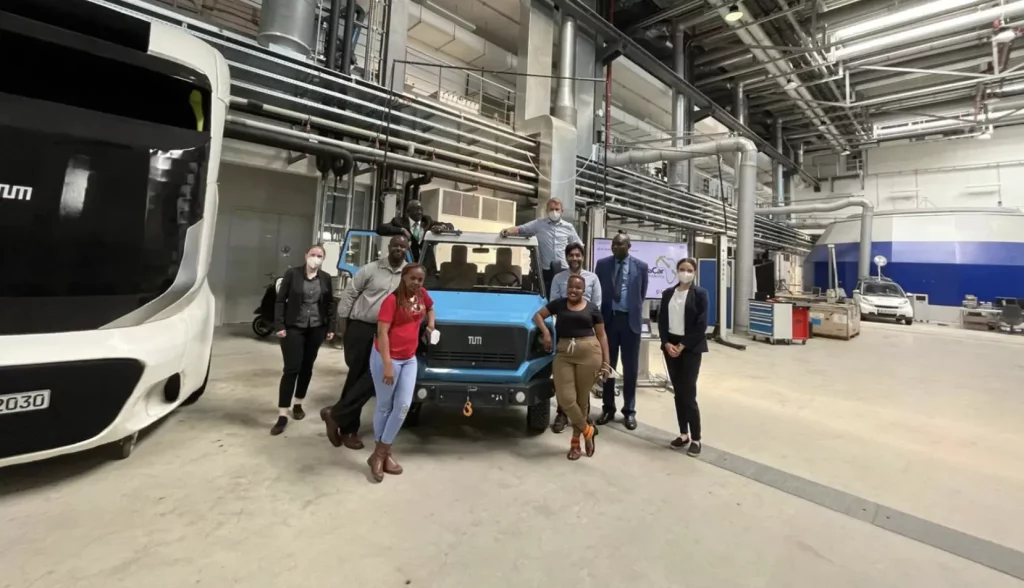
Source: Manufacturing Outlook
According to Isuzu East Africa Limited on their LinkedIn post, in Kenya’s car industry, about 40% of the parts in Kenyan-made vehicles are locally made, supporting more than 10,000 jobs. This is a big deal for the economy, but there’s room to grow.
Challenges of Kenya Vehicle Manufacturers
The automotive industry in Kenya faces a few challenges. One big challenge is competition from imported used cars.
Many people in Kenya buy used cars imported from other countries because they’re cheaper than new ones. This makes it hard for new, locally-made cars to compete.
Opportunities for Kenya Vehicle Manufacturers
The government is trying to help the industry by making policies that encourage people to buy new, locally-made vehicles instead of imported used ones.
For example, the National Automotive Policy and the Kenya Standard 1515 aim to reduce the number of used cars coming into the country and increase local manufacturing.
This could lead to more jobs and help Kenya become a hub for vehicle manufacturing in the region, similar to countries like South Africa, Morocco, and Egypt.
Statistics on the Production Volume and Types of Vehicles Manufactured in Kenya
According to a report by Statista on December 1, 2023, Kenya had about 347,000 new vehicle registrations in 2020. Most of these, around 246,700, were motorcycles and small motorbikes. There were also nearly 58,000 new station wagons registered that year.
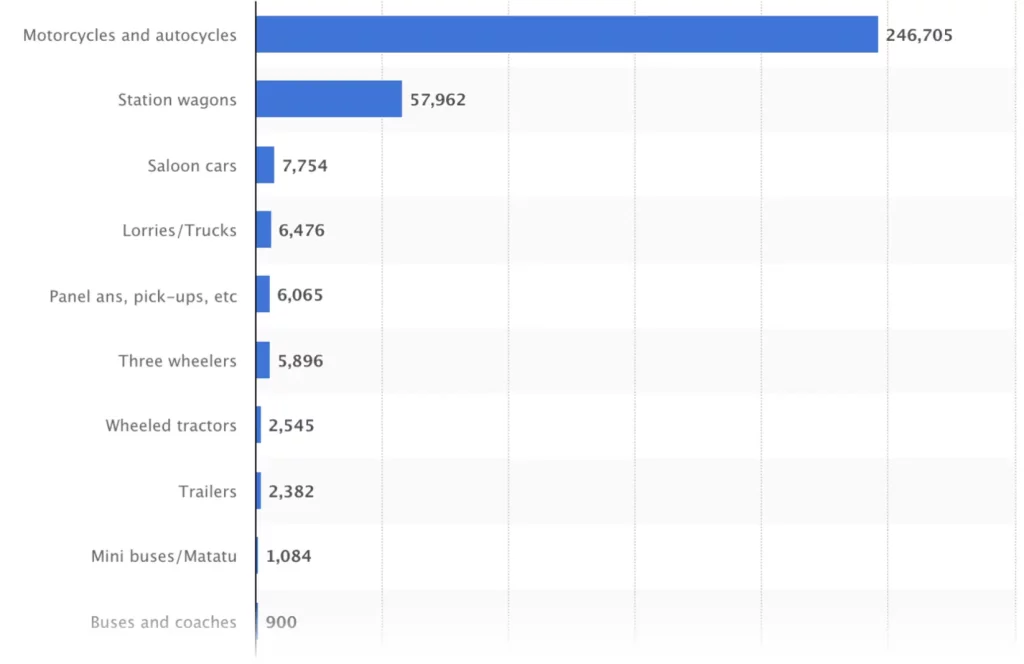
Source: Statista
Summary
Key manufacturers in Kenya are not just selling vehicles; they’re also producing them locally, ranging from commercial trucks to personal cars.
These manufacturers, including internationally recognized names and emerging local companies, are employing modern technology to ensure their vehicles meet the highest standards of quality and safety.
The vehicle manufacturing industry in Kenya also offers a vast range of possibilities for anyone interested in the automotive sector.
Whether you’re an investor, manufacturer or enthusiast, there’s much to explore and discover in Kenya’s growing automotive scene. Let’s find a thousand manufacturers in Kenya through the Hi-Fella platform!


